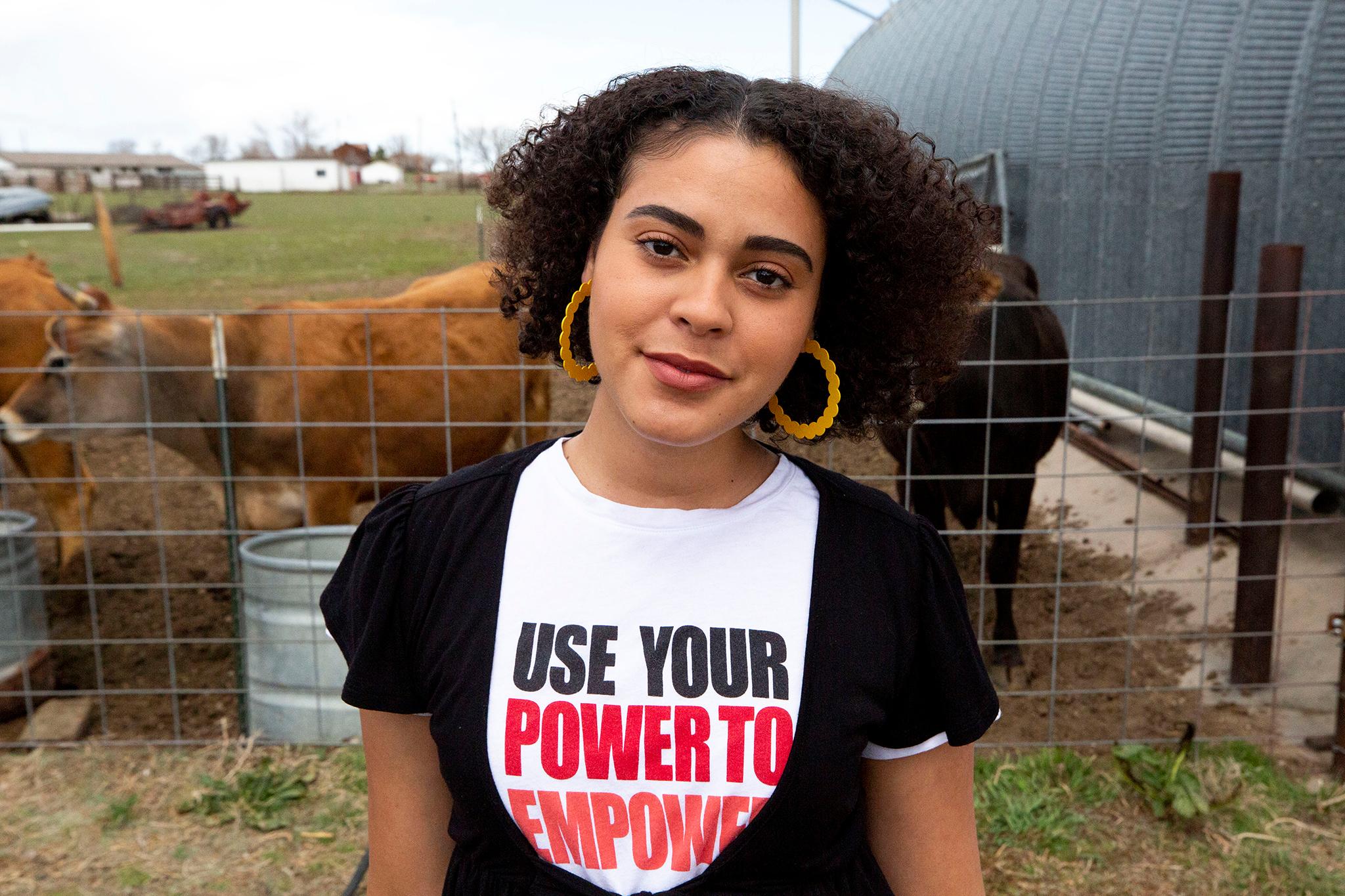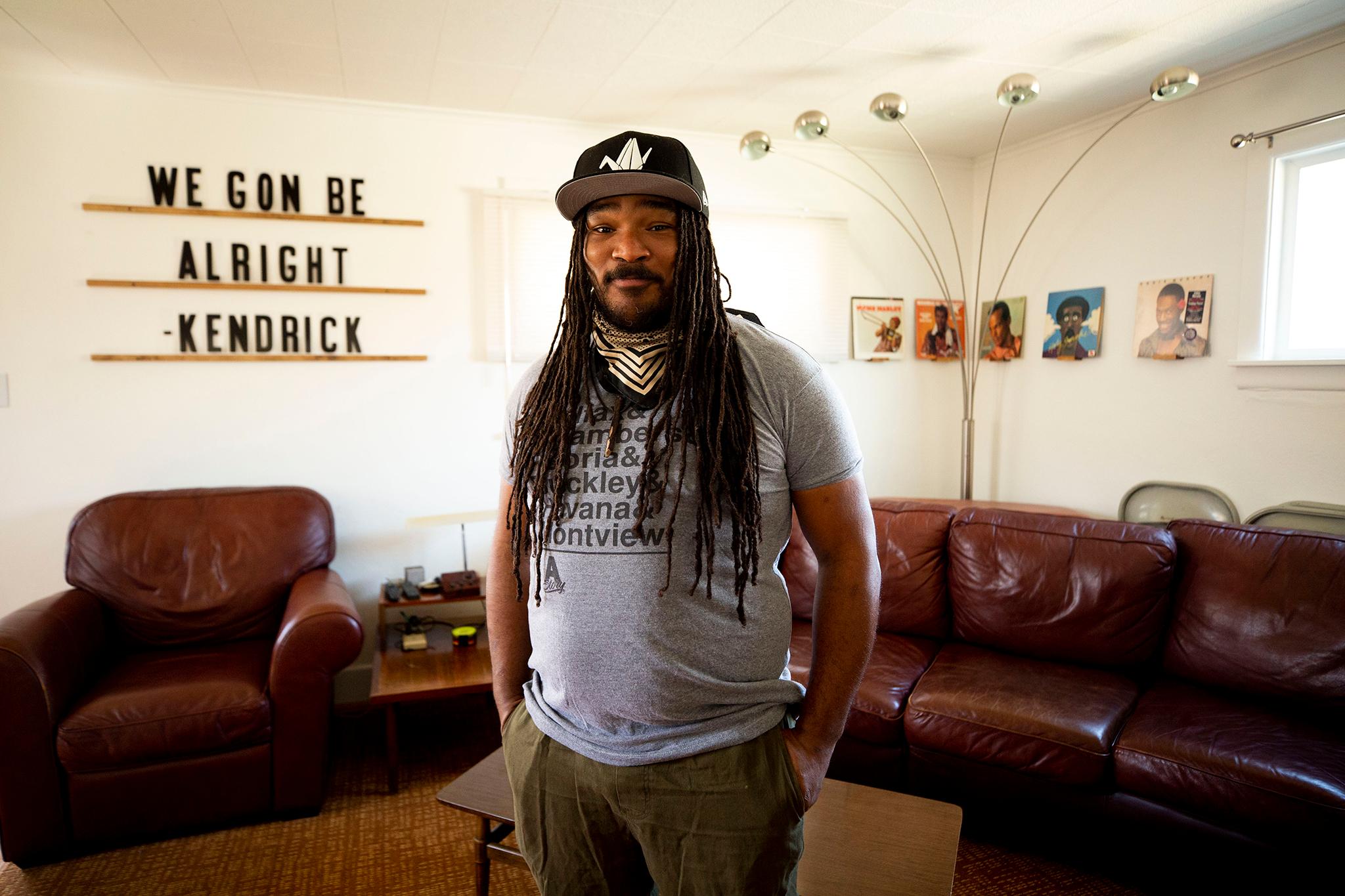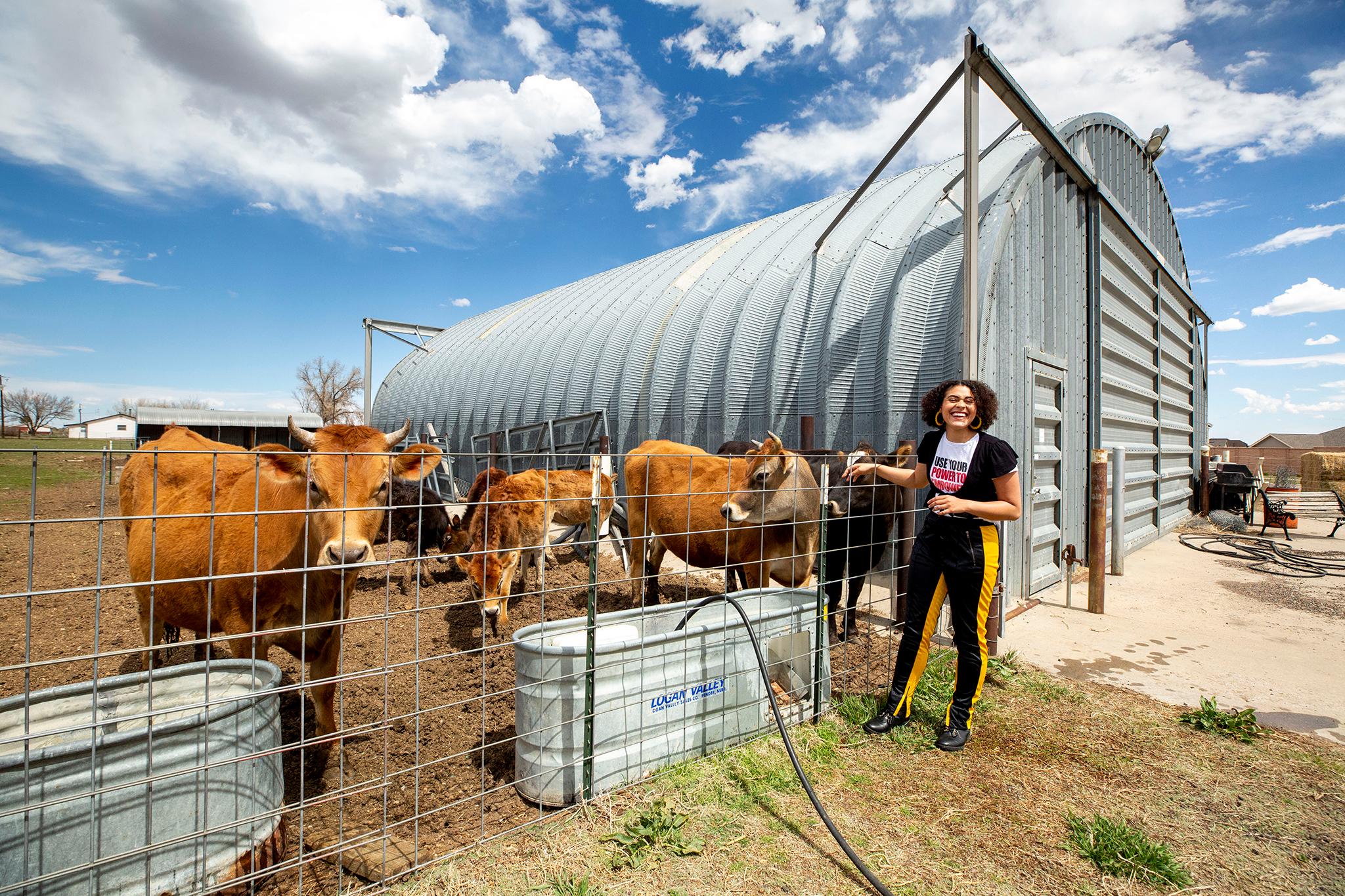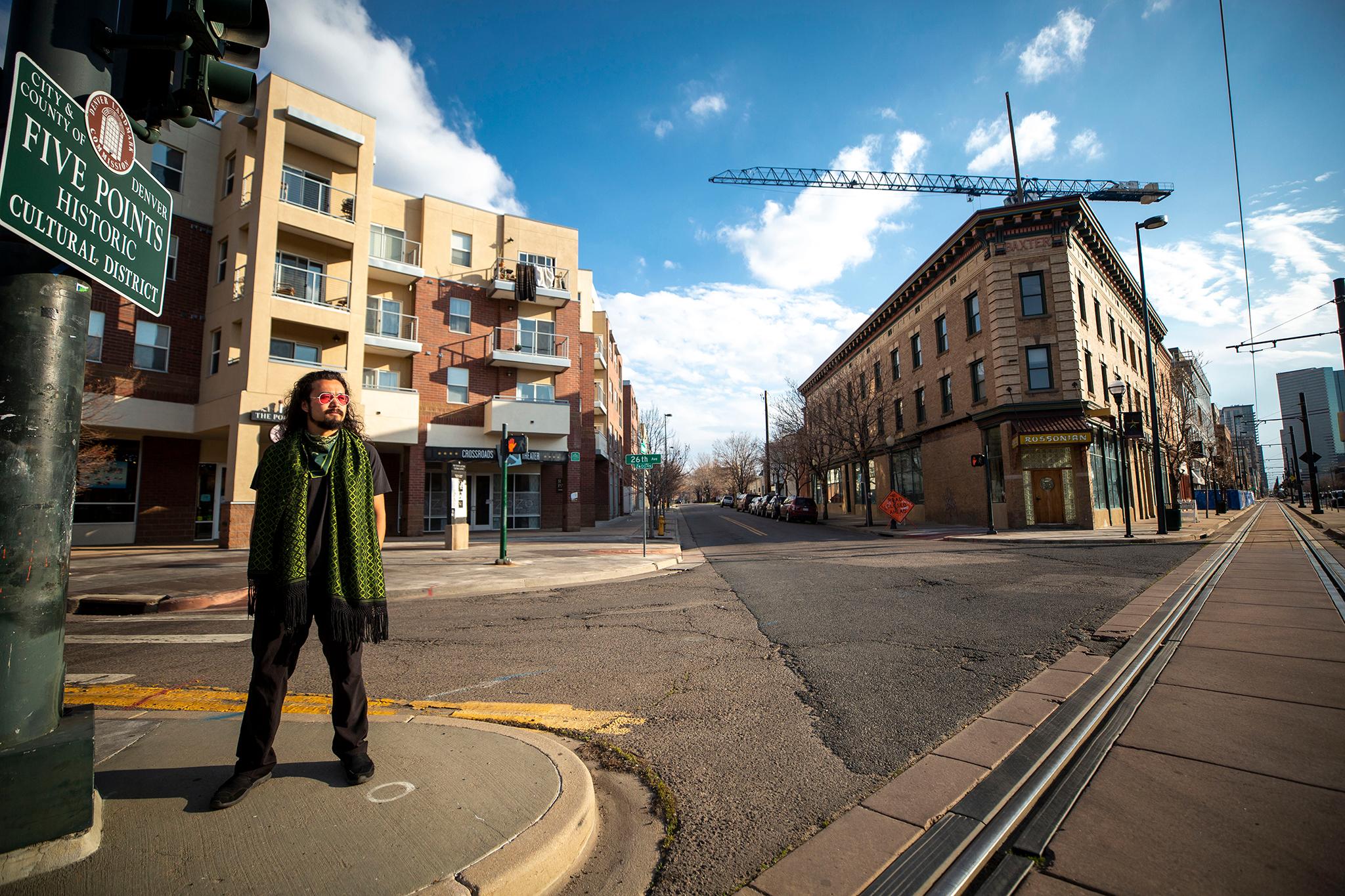While singer Mandy Groves hasn't seen her own video on a new internet showcase for Denver talent, she knew she was in good company when she saw one of her favorite bands, Los Mocochetes, on the platform launched this month by the WeAreDenver artists collective and the Black Actors Guild.
"I love the way they put it together," Groves said. "It's like old-school MTV."

It came together quickly, said Ryan Foo, who is a founder of WeAreDenver and co-CEO and director of operations for the Black Actors Guild.
Foo's team announced the project on March 22 and began seeking material from musicians, slam poets, comedians, dancers and more. Videos started coming in, and the pace of submissions sped up when the effort was joined by Head Room Sessions, which for more than three years has been helping artists produce videos and other promotional materials. Head Room videos are made before small audiences at ReCreative Denver, a nonprofit craft store and community art center on Santa Fe Drive. ReCreative's concrete floors, steel staircase and the art on its walls feature in many of the videos on the new online platform, which can be accessed through the WeAreDenver web site.
The platform went live April 1 with hundreds of videos organized into three hour-long segments, each playing on a loop.
It's free to watch. But text that pops up during the videos gives viewers information about how to contact the performers and how to support them, including with money, via Venmo and PayPal. Artists can submit their work -- recording themselves with cell phones in their living rooms if they like -- via the site and do not have to pay to be included. Foo said the idea is to encourage performers to keep creating despite the isolation and economic slowdown due to the coronavirus outbreak.
Encouraging direct monetary support to artists is central to the platform, Foo said, "because they need it and deserve it."
The platform came out of conversations among members of WeAreDenver artists collective and the Black Actors Guild who had relied on earnings from performances at venues that were closing and teaching in arts programs at schools that were suspending classes to try to stop the spread of COVID-19, the disease caused by the novel coronavirus.
"As soon as COVID happened, our income went to zero pretty quickly," Foo said.
They saw artists turning to livestreaming and other ways to reach audiences via the internet.
"We're always focusing on what does it mean to support local in a digital age," Foo said, adding that they did not see a central place for Denver audiences looking for their local favorites online.
"We figured, 'Let's make it.' And it's gone at the speed of light," he said.
Jovan Mays, a former Aurora poet laureate, has seen spikes in visits to his web site he attributes to his appearance on the WeAreDenver platform. It's a way to connect with audiences, but also with other artists, he said. Mays said performances he's seen on the platform made him want to reach out to the artists to talk about collaborations.
"Poetry in the city is fantastic," he said. "But we also have a very limited network."

Mays said he is usually busy, working at a Denver YMCA and for Aurora Public Schools, coaching wrestling at his alma mater Smoky Hill High School. The stay-at-home order has given him time not only to watch his web traffic, but to take long walks, learn about gardening, and work on a new poem.
The new piece is informed by the social and economic inequities laid bare by a pandemic that has hit minority and poor communities hard.
"For a lot of our city, our quarantine is like a temporary break," Mays said. "But for other people, they've been broken."
The poem he's writing does not approach COVID-19 directly. Mays said it is a contemplation of "Amazing Grace," the 18th century hymn written by a former slave trader.
"We know this song better than any one else," Mays said. African-Americans "have been asked to sing it as an anthem, but we know it as a eulogy."
While the coronavirus shut-down has been a contemplative time for Mays, singer Groves said she was initially stymied.
"It was just my own self getting in the way," she said. "I suddenly felt like I was lazy and I wasn't getting anything done."
Groves is also an actress. She said her acting career has been harder hit by the coronavirus, while livestreaming opportunities for her music have increased.
During the coronavirus lock down, her producer, Shinu, has joined Groves, her boyfriend and her two cats at home on a Brighton farm her boyfriend's family has owned for generations. She's been working on a new song with a COVID-19 theme, about lonely, quarantined people texting their exes.

Groves was brought onto the WeAreDenver platform by Elle Naef, the creative director at Head Room, with whom she had worked in the past.
Naef said that while the coronavirus shutdown prevents Head Room from making new videos, the WeAreDenver platform is a way to keep "displaying the wealth of creativity that we have in this city. And the value of it."
Naef said she has seen people turn to the arts for comfort during these stressful times. Her Head Room co-founder, Matthew Shaw, nodded in agreement as the two spoke during a video conference interview.
"Hopefully, whatever 'after this' looks like, people will continue to show appreciation for artists," Shaw said.
Groves said she was surprised when Naef asked for her Venmo details to be included in her video, and only then did she start to learn how the platform would work.
"I just say yes to everything that anybody asks me to do. So a lot of the time that means I don't ask a lot of questions," she said. "Saying yes ... you just make so many connections. You never know what little thing is going to pay off."
Now WeAreDenver and the Black Actors Guild are taking on more partners for the project. They will be working with Head Room, Westword, the people behind the ARISE music festival and PBS 12. Starting April 13, each of the partners will add an hour of content to the site every week for 90 days. Along the way, the partners hope to attract sponsors and advertisers to produce revenue that can be shared with the artists and used to keep the project running.
On Thursdays, for example, ARISE will be uploading material that includes performances from artists that have worked with the festival over the last seven years that it has been presented in Loveland. No festival had been planned this year, and ARISE owner Luke Comer had been looking for ways to help support Colorado artists, according to John March, ARISE's associate producer.
ARISE had already teamed up with two music streaming projects when March came across a Facebook post by Foo about the WeAreDenver platform.
"I'm looking for ethical people who are really interested in altruistic movement," March said. "I have been tasked by Luke to actively look for these alliances."
March reached out with a Facebook message. Under stay-at-home orders, most of the organizing of the platform has been via social media, email, phone and video conference.
PBS 12 executive producer Heather Dalton said collaborating at a distance has "been very inspiring and productive. Weird. But productive."
Dalton said PBS 12's weekly hour will feature material from the station's archive of culture and community programs.
She said she has long admired WeAreDenver for its "creative takes on bringing people together."
"God only knows what, once we're out of isolation, what they can accomplish," Dalton said, adding she expects working together on the performing arts platform is only a beginning of cooperation between PBS 12 and WeAreDenver.
Foo said that once artists are back performing on stages and in clubs, the platform they are filling with content can serve as an archive of online auditions.
"We'd love to have data on every artist in Denver and help them get gigs," Foo said.













